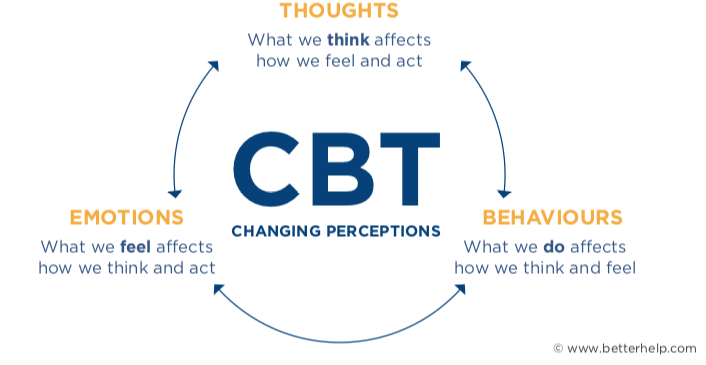TRANSLATIONAL RESEARCH PROGRAM OF PSYCHIATRY AND PSYCHOLOGY
COGNITIVE BEHAVIOURAL THERAPHY COMES OF AGE IN JAPAN
-Better access to mental health care in schools, at work and online could help people of all age groups suffering from anxiety, depression and other related conditions.
Research Keywords: Psychiatry, Psychology, Cognitive Behavioral Therapy
 Science Photo Library / Alamy Stock Photo
Science Photo Library / Alamy Stock PhotoMajor efforts are underway to help treat and prevent anxiety-related disorders in Japan —where as many as one in four people experience mental health problems during their lifetime.
Social Anxiety Disorder (social phobia), one of the most prevalent, is characterised by an intense fear of social situations. In some cases, social phobia can lead to addiction, depression or suicidal behaviour.
Many doctors, legislators and patients now recognise cognitive behavioural therapy (CBT) as an effective treatment for social phobia. By changing negative patterns of thinking and behavior, CBT can help children overcome anxiety and the fear of uncertainty, adolescents better manage de- pression and irritability, and adults deal with a host of stressful life experiences.
A LEADING CENTRE FOR CBT RESEARCH AND EDUCATION
We are now actively trying to increase the number of CBT experts in Japan,” says Eiji Shimizu of Chiba University’s Research Center for Child Mental Development and Chiba University Hospital’s Cognitive Behavioral Therapy Center. “However, CBT resources in Japan are still relatively scarce.” Chiba University and its affiliated hospital are spearheading efforts to address this.
The Chiba Improving Access to Psychological Therapies (Chiba-IAPT) program, adapted from a UK model, became the first post-qualification training course of its kind in 2010.
“It’s important to tailor treatments to reflect not only cultural differences, but also personal differences,” Shimizu adds. His team are developing new tailored interventions, such as internet-based CBT (iCBT), which are low-cost, easy to use, and provide optional anonymity.
In 2017, his group released a study protocol for iCBT on patients with persistent insomnia. They have also produced a simplified, five-minute program that can be used to help reduce depressive symptoms.
As part of his wider research, Shimizu contributed to the first study that visualised changes in brain activity during psychotherapy in 2015. Using functional magnetic resonance imaging (fMRI), the results indicated that the left posterior parietal cortex plays a vital role in cognitive restructuring — a process used in CBT that enables people to challenge existing beliefs.
In 2016, Shimizu and his colleagues showed that CBT can help reduce social anxiety for patients ineffectively treated with antidepressants. In recognition of the growing need for professional CBT care, at the end of 2018 the Japanese government began to certify licensed psychologists. The national health insurance system has been updated to cover doctor-administered CBT for patients with depressive disorders, anxiety disorders and bulimia nervosa.
There are also moves to introduce CBT- based anxiety prevention programs in Japanese elementary schools.
A 2018 study, designed by Yuko Urao and supervised by Shimizu, examined the effectiveness of an anxiety prevention program named Journey of the Brave, targeted at children aged 10–12 years. Consisting of ten 45-minute sessions held during school hours, the program involved deepening understandings of anxiety, monitoring feelings, and developing assertiveness skills to reduce social stress.
While further follow-up studies are planned, preliminary results indicate that the program can help children manage their anxiety levels. “Our hope is that in ten years’ time, all children in Japan will have access to this program,” Shimizu says.
(CHIBA RESEARCH 2020)Members
Principal Investigator
| Name | Title, Affiliation | Research Themes |
|---|---|---|
| SHIMIZU Eiji | Professor, Graduate School of Medicine | Cognitive Behavior Therapy |
Co-Investigatior
| Name | Title, Affiliation | Research Themes |
|---|---|---|
| KIMURA Eiji | Professor, Graduate School of Humanities and Studies on Public Affairs | Perceptual Psychology |
| ICHIKAWA Makoto | Professor, Graduate School of Humanities and Studies on Public Affairs | Cognitive Psychology |
| ISOBE Chikae | Associate Professor, Graduate School of Humanities and Studies on Public Affairs | Social Psychology |
| IWATA Miho | Professor, Faculty of Education | Educational Psychology, Developmental Psychology |
| SUNAGAMI Fumiko | Professor, Faculty of Education | PreSchool Education, Developmental Psychology |
| NAKAMICHI Keito | Associate Professor, Faculty of Education | PreSchool Education, Developmental Psychology |
| NIITSU Tomihisa | Associate Professor, Graduate School of Medicine | Psychiatry |
| TOMOTO Aika | Associate Professor, Center for Forensic Mental Health | Criminal Psychology |
| HIRANO Yoshiyuki | Professor, Research Center for Child Mental Development | Cognitive Behavior |
| OTANI Toshiyuki | Associate Professor, Safety and Health Organization | Mental Health |
| YOSHIMURA Kensuke | Professor, Chiba University Hospital | Medical Informatics |
